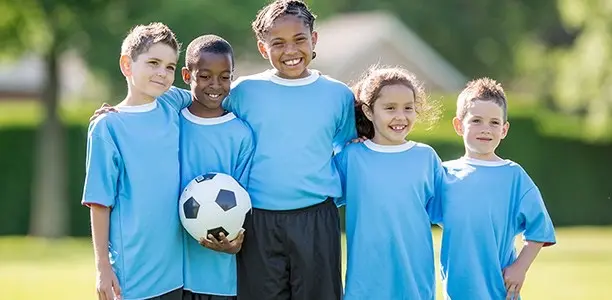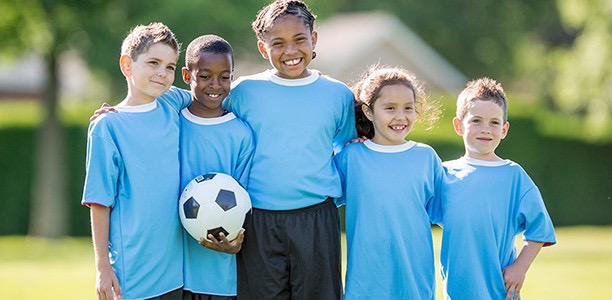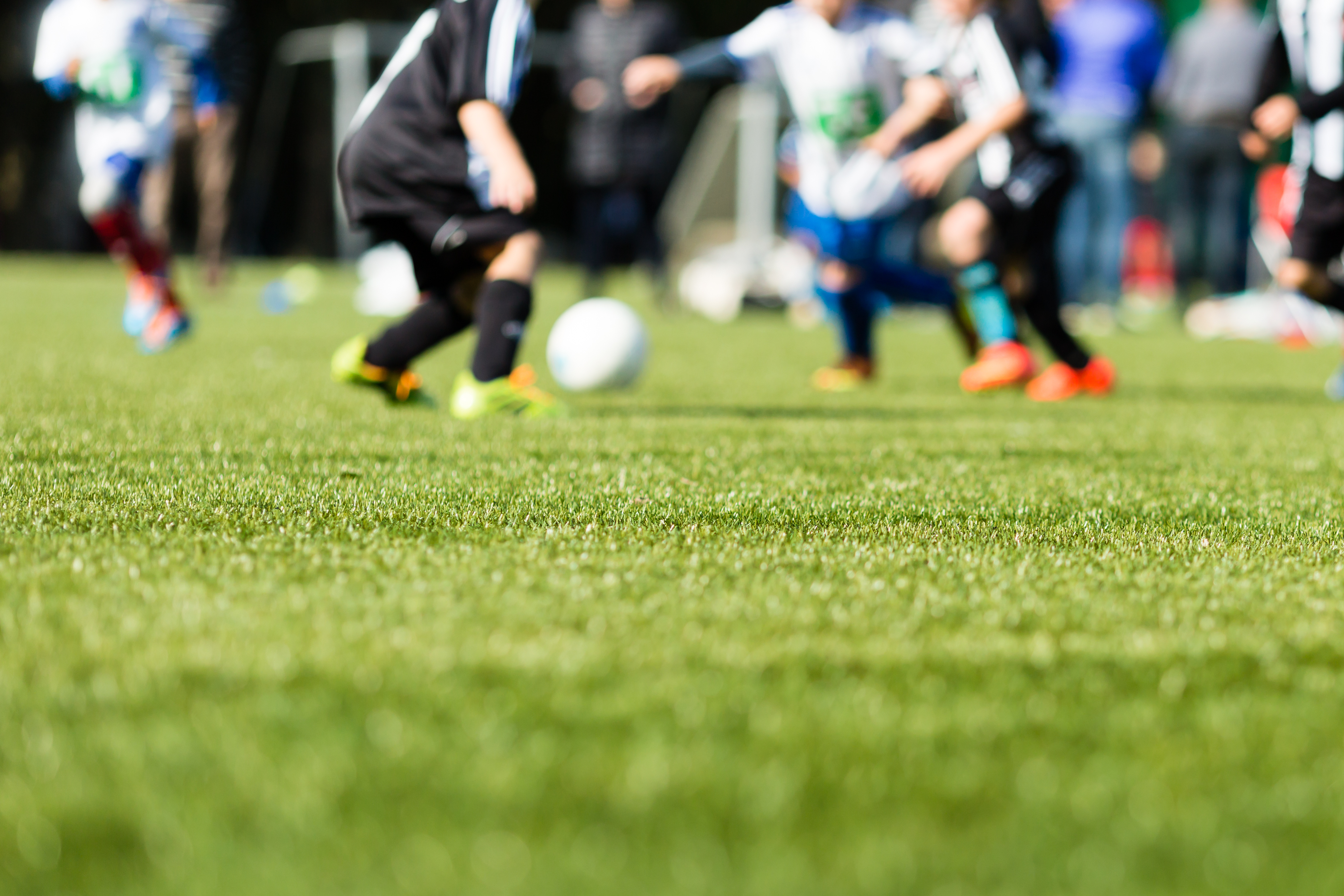
Aug 05, 2016 • 4 min read
Relative Age and Developmental Age: Is Your Child Getting Shortchanged?
Posted in:
Why do kids differ so much in speed, strength and skill?
When adults watch small children getting started in physical activities and sports, they see that some are clearly bigger, faster, stronger and even “more skilled” than others. Based on these observations, they often assume that some children are “natural born talents” and others aren’t.
Most often they’re wrong. If we are talking about pre-teen children in a given birth year, the adults are probably witnessing one or both of two factors: Relative age and developmental age.
 Relative age refers to the month of the year in which the child is born. A child born in January, for example, is almost a full year older than the classmate who is born in November or December. When these two children start first grade together, can you guess which one is more likely to learn their ABCs faster? One year can make a very big difference.
Relative age refers to the month of the year in which the child is born. A child born in January, for example, is almost a full year older than the classmate who is born in November or December. When these two children start first grade together, can you guess which one is more likely to learn their ABCs faster? One year can make a very big difference.
Developmental age is different from relative age, but it produces similar discrepancies. It refers to the physical, mental and emotional maturation of the child. And children can vary widely in their developmental age.
Have you ever had the feeling that some kids mature faster than others, even if they are born in the same month and year? You’re right. Some kids do mature faster than others. And some kids are outright slow to develop. It’s not good or bad. It’s just different, a product of genetic diversity.
The kids who mature earlier than their peers of the same birth year are said to have an older developmental age than their peers, and they are colloquially called “early maturers.”
Why should you care about relative age and developmental age? Because your child could be getting shortchanged. Either by their teacher, their coach or even you.
As the research clearly shows, kids born late in the year are disadvantaged. They tend to perform less well in school and sports than their early-born peers, and consequently they tend to receive less recognition and encouragement. And if they also happen to be late maturers, the effect is amplified.
You might guess what happens next. In many instances, they start to put less effort into school, and they lose even more ground relative to their older and more mature peers.
These sorts of distortions happen all the time in sports and physical activities. Children with an older relative age or developmental age–or a combination of both–tend to outperform their peers in the early years. And what does the coach or parent think? “Wow! That kid is talented!”
Sorry, but the kid is probably not especially talented. If you dig deeper, you’ll probably discover that the child has simply been born early in the year and/or matured early.
Why should we care?
Because the child born in December may eventually outperform their peers born in January, but only if they receive equal coaching and teaching attention in the early years. If we decide, when they are only 8, to relegate them to a lesser-quality program or give them less coaching and teaching based on their “lesser talent,” they may never reach their full potential. They may, in fact, fall very far short of it. And that is a great loss to everyone, especially the child in question.
So be careful when you assess “talent” in children. Remember the relative age effect and the impact of developmental age. Don’t be too quick to judge children as talented or untalented.
You could be shortchanging them for life.
Further reading: See chapter one “The Matthew Effect” in Malcolm Gladwell’s book, Outliers, for a fascinating discussion of the Relative Age effect in professional hockey and soccer.
Jim Grove is a contributing editor with Active for Life, a nonprofit organization committed to helping parents raise happy, healthy, physically literate kids. For more articles like this one, please visit ActiveforLife.com.
